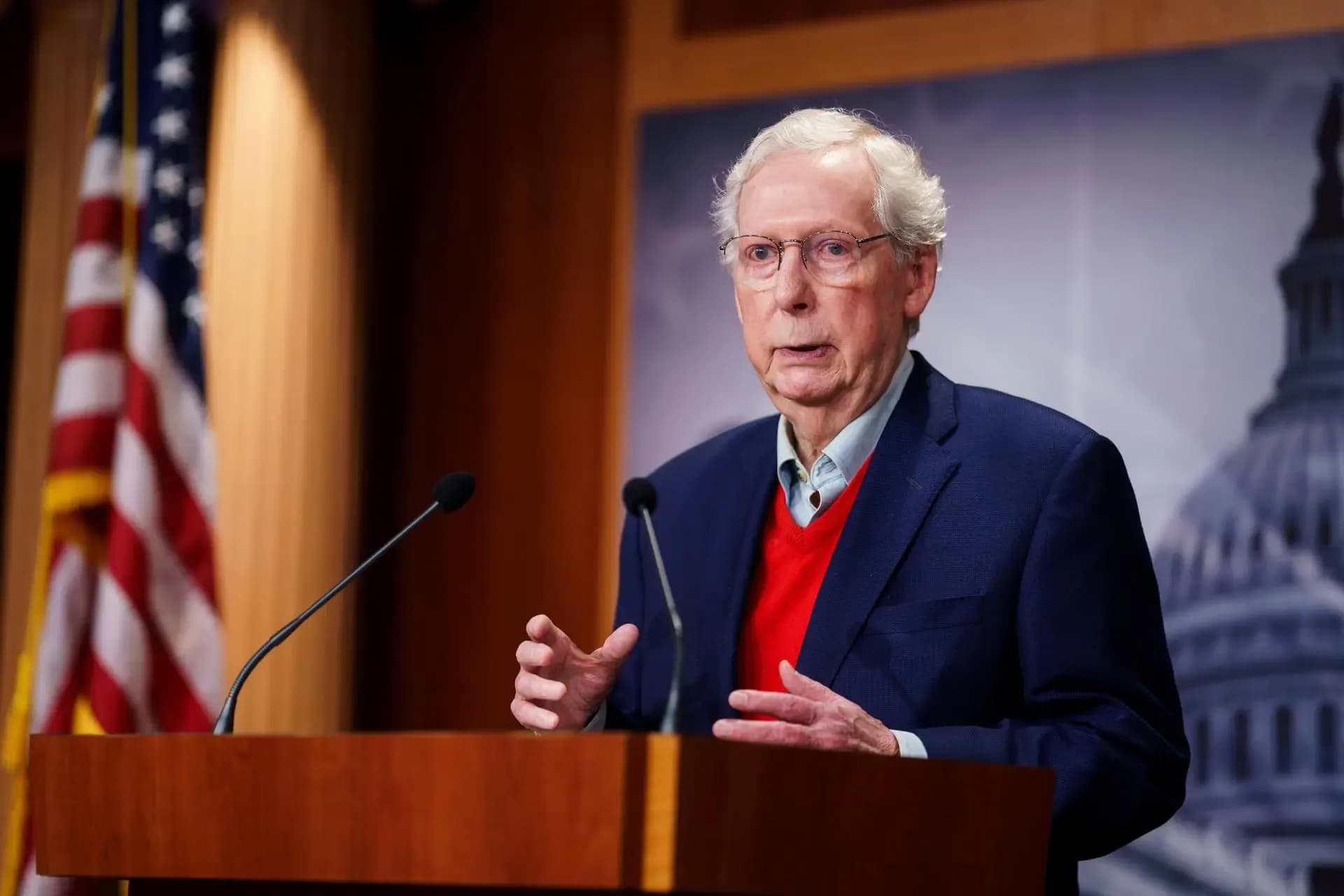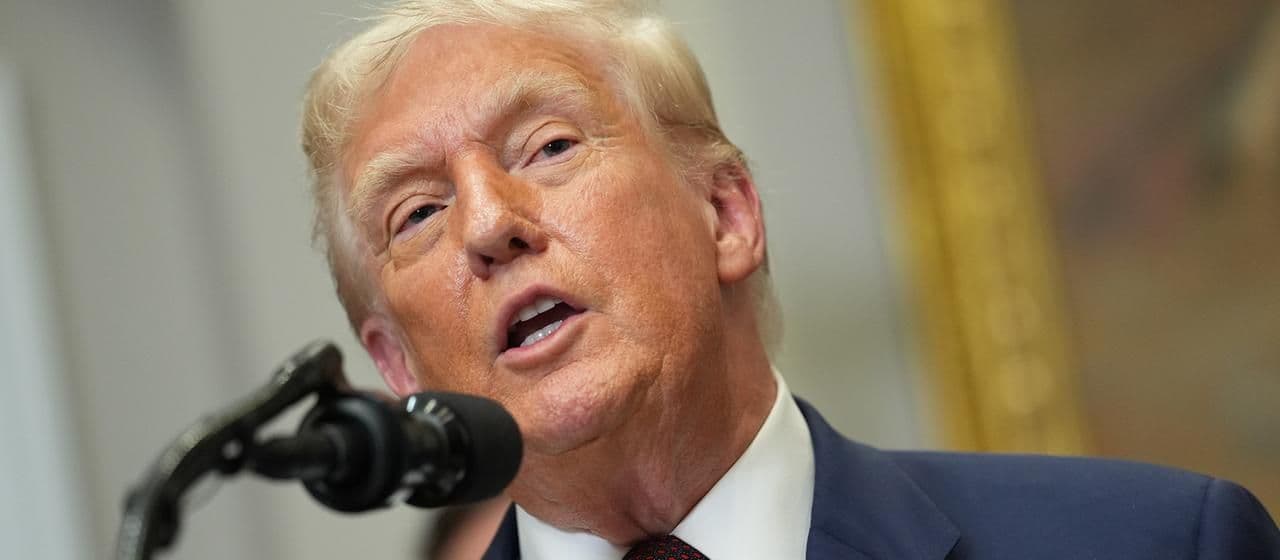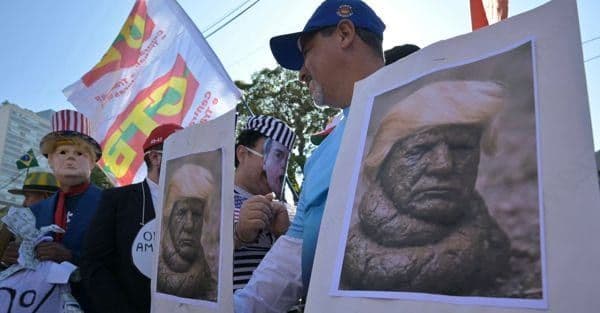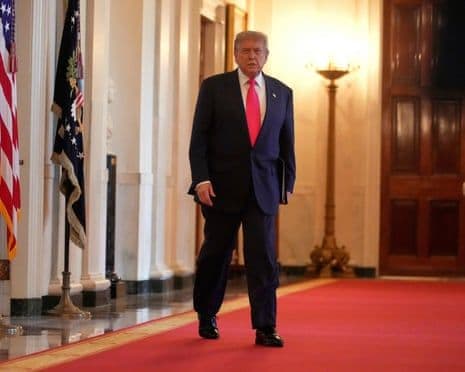The Political Price Tag: How Domestic Legal Battles Shaped Trump's Brazil Tariffs
Unpack Trump's Brazil tariffs, revealing how domestic political battles and personal allegiances, not trade, dictated policy. Discover the true motives and global implications.
The Unexpected Decree: A Tariff Shockwave
The global trade landscape was rattled by an unforeseen announcement from former President : a sweeping 50% tariff on Brazilian goods. This decree, issued via executive order, cited Brazil's domestic policies and the ongoing criminal prosecution of former President as an "economic emergency" under a 1977 law. The move immediately raised eyebrows, not least because the United States had, in fact, enjoyed a $6.8 billion trade surplus with Brazil in the preceding year, according to the . Such a significant tariff, therefore, defied conventional economic logic. The White House's accompanying statement further hinted at the true underlying motives, vaguely referencing the Brazilian judiciary's alleged attempts to coerce social media companies, specifically and , and block their users. The suddenness of the measure left Brazilian exporters scrambling, with an estimated 30,000 tons of beef already en route or at ports, caught in the crossfire. Industry leaders quickly projected a staggering $1 billion negative impact and a loss of approximately 200,000 tons in beef exports for the coming semester.
Beyond Economic Logic: Unpacking the Political Pretext
Delving deeper into the rationale behind these unprecedented tariffs reveals a narrative far removed from economic imbalances. The core of Trump's justification lay in what he framed as an "economic emergency" stemming from Brazil's internal affairs, particularly the judicial actions against former President . This stance strongly suggested a political alignment; Trump openly identified with Bolsonaro, who had similarly attempted to overturn his 2022 election defeat, mirroring Trump's own legal battles over the 2020 US presidential election. Further solidifying this political solidarity, Trump's Treasury Department announced sanctions against Justice of Brazil's Supreme Federal Court, who oversees the criminal case against Bolsonaro. De Moraes was explicitly accused by the Trump administration of suppressing freedom of expression. This was not an isolated incident; the State Department had already imposed visa restrictions on Brazilian judicial officials, including De Moraes, just weeks prior. In essence, the tariffs served less as a trade correction and more as a powerful, overt statement of ideological support and disapproval of Brazil's current political direction under President .

Brazil's Bitter Bite: Industries Grapple with Retaliation
The imposition of such a steep tariff sent immediate shockwaves through Brazil's export-oriented industries, particularly the vital beef sector. With the 50% tariff set to take effect, approximately 30,000 tons of Brazilian beef, already loaded onto ships or waiting at ports for shipment to the US, faced an uncertain fate. While some of these shipments eventually continued their journey, others had to be hastily redirected to alternative markets like , a logistical and financial headache for exporters. Roberto Perosa, president of the Brazilian Association of Exporting Meat Industries (), wasted no time in quantifying the expected damage, projecting a grim $1 billion negative impact on the meat industry. This loss would encompass an estimated 200,000 tons of exports to the US in the current semester alone. For context, Brazil had already exported 181,500 tons of beef to the US in the first half of the year, generating over $1 billion in revenue. The abruptness and scale of the tariffs, clearly driven by political motivations rather than trade deficits, left Brazilian President visibly indignant, underscoring the severe blow to bilateral relations and Brazil's economic outlook.
The Weaponization of Trade: A Dangerous Precedent?
The tariffs against represent a stark example of trade policy being wielded not for economic adjustment, but as a direct instrument of geopolitical and ideological pressure. By grounding the 50% tariff in a 1977 law pertaining to "economic emergencies" — despite a US trade surplus with Brazil — the Trump administration stretched the conventional boundaries of trade disputes. This move, coupled with the sanctions against a Brazilian Supreme Court justice and visa restrictions on judicial officials, signifies a troubling trend: the weaponization of economic tools to intervene in the domestic legal and political affairs of sovereign nations. Such actions bypass traditional diplomatic channels and established international trade norms, potentially undermining the very foundations of global commerce. It raises critical questions about the future of multilateral trade agreements and the , as nations might increasingly resort to unilateral economic coercion to advance political agendas. The precedent set here is particularly dangerous, as it invites reciprocal actions and could destabilize international relations, pushing countries to choose sides in ideological battles rather than fostering mutually beneficial trade.
Future Horizons: Redefining US-Brazil Relations
This episode of politically motivated tariffs undoubtedly casts a long shadow over the future of relations. The direct link between the tariffs and Brazil's domestic legal processes, particularly the prosecution of a former president, has introduced an unprecedented dimension to bilateral ties. It signals a willingness to leverage economic power for ideological alignment, a strategy that could profoundly reshape diplomatic engagements moving forward. Will future US administrations, or indeed, other global powers, feel emboldened to employ similar tactics, using trade as leverage in political disputes? The incident may force Brazil to re-evaluate its trade dependencies and diversify its economic partnerships, seeking more stable and predictable relationships. For the United States, such actions risk alienating key regional partners and undermining its reputation as a reliable and predictable trading partner. The path ahead for US-Brazil relations now hinges on whether both nations can navigate this politically charged precedent, finding common ground that transcends ideological divides, or if the weaponization of trade will become a recurring feature, further complicating an already intricate global landscape.
Related Articles

Washington's Wager: How Bipartisan Senate Dissent Reshapes the Brazil Tariff Narrative

Washington's Wager: How Bipartisan Senate Dissent Reshapes the Brazil Tariff Narrative

The Unfolding Trade Chessboard: Trump's Tariffs and the Global Response

The Unfolding Trade Chessboard: Trump's Tariffs and the Global Response

The Unpredictable Toll: Unpacking Trump's Differentiated Tariffs on Global Partners

The Unpredictable Toll: Unpacking Trump's Differentiated Tariffs on Global Partners

The Reciprocal Ripple: Unraveling Trump's Trade Gambit on the Global Stage
